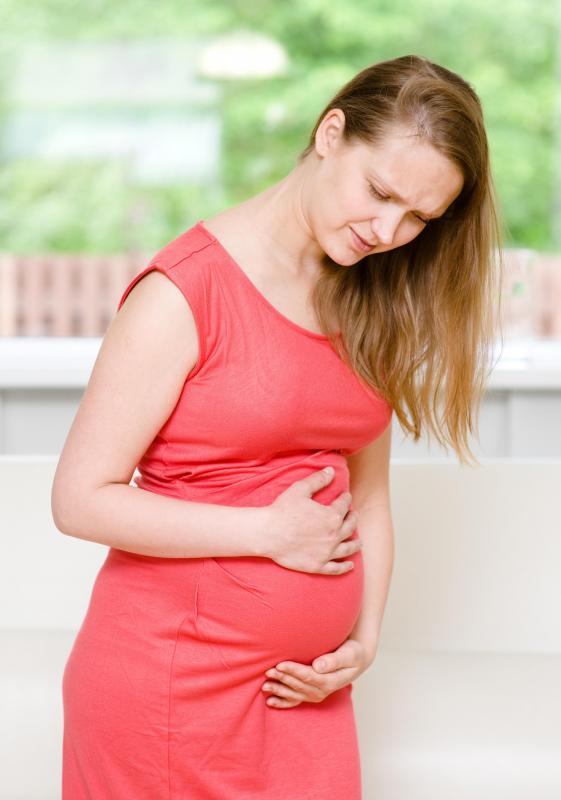At WiseGEEK, we're committed to delivering accurate, trustworthy information. Our expert-authored content is rigorously fact-checked and sourced from credible authorities. Discover how we uphold the highest standards in providing you with reliable knowledge.
What are the Causes of Spotting During Pregnancy?
Spotting during pregnancy has a variety possible causes. In some cases, this light bleeding may be caused by normal, harmless pregnancy changes, including implantation and increased sensitivity of the cervix. Other times, it may be caused by more serious problems that can threaten the health of the mother and developing baby, such as miscarriage, tubal pregnancy, infection, placenta problems and premature labor.
Some common and generally harmless causes of spotting during pregnancy are related to changes taking place in a woman’s body. For example, when the fertilized egg implants in the uterus, around week four of pregnancy, a woman may experience some spotting. This is also called implantation bleeding and is caused by the disturbance of the uterine lining as the fertilized egg burrows in. Another natural change that takes place during pregnancy is increased blood flow to and sensitivity of the cervix; these changes can make the cervix more likely to bleed when it is touched, such as during sex or when having a pap smear or pelvic exam, resulting in spotting. In both of these cases, the spotting is generally short-lived and goes away on its own.

Other, more serious, potential causes of spotting during pregnancy include miscarriage and tubal pregnancy. Miscarriage, or the loss of pregnancy, may start with light spotting, but it generally progresses to heavier bleeding and additional symptoms, such as cramping. A tubal pregnancy, a potentially life-threatening condition where the fertilized egg implants in fallopian tube, may also cause spotting as the developing embryo begins to cause damage to the fallopian tube or surrounding tissue. Both of these conditions are usually found during the first trimester of pregnancy and loss of the pregnancy is often unavoidable. Treatment to ensure the mother’s health and safety, however, is still generally needed.

Certain infections can also cause spotting during pregnancy. These may include bacterial vaginosis, vaginal yeast infections and urinary tract infections. Prompt, proper treatment can often help resolve the spotting and prevent harm to the mother and unborn child. Without treatment, however, more serious complications may occur.
Problems with the placenta, such as placenta previa and placental abruption, and premature labor can also cause spotting during pregnancy. These conditions are more common during the second and third trimesters of pregnancy and usually progress to heavier bleeding. They can threaten both the mother’s health and the life of the unborn child. Depending on the exact problem, treatment may help stop the bleeding and maintain the pregnancy. In some cases, even with treatment, loss of the baby may occur.
AS FEATURED ON:
AS FEATURED ON:















Discuss this Article
Post your comments